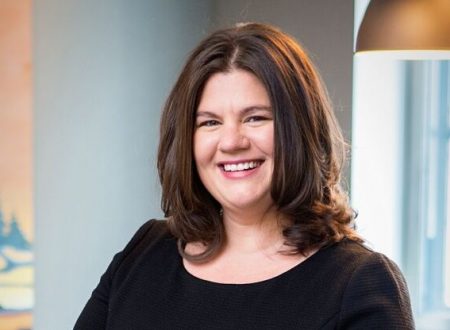This morning, the Canadian Human Rights Tribunal released its latest decision in First Nations Child and Family Caring Society. The decision was a big victory for First Nations kids. OKT’s Maggie Wente and Krista Nerland are proud to represent Chiefs of Ontario (COO) in this case.
For First Nations in Ontario, the important takeaway is that retroactive to January 26, 2016 and going forward, band representative services and mental health services for First Nations children and youth will be funded, at the actual costs incurred by the service provider. There is more information below about how to claim expenses under the Tribunal’s order.
The First Nations Child and Family Caring Society, Assembly of First Nations, Nishnawbe Aski Nation each also brought motions about immediate relief.
The back story
As many of you will remember, on January 26, 2016, the Tribunal found that the Government of Canada was discriminating against First Nations children by underfunding First Nations child and family services. Since then, the complainants and interested parties – the First Nations Child and Family Caring Society, the Assembly of First Nations, COO, Nishnawbe Aski Nation, and Amnesty International – have been pressing Canada to address the discrimination identified by the Tribunal by providing more “immediate relief” in the short term in the short term while the system is being overhauled. Canada has been dragging its feet, and has only provided limited prevention funding to First Nations in Ontario.
This latest decision is an important victory in that process. The Tribunal’s decision recognizes that Canada has not addressed discrimination against First Nations children quickly enough, and orders Canada to provide immediate relief funding and support to address the worst sting of the discrimination while longer term reform of the child welfare system takes place.
What was ordered
Here are just a few examples of the measures Canada was ordered to take nationwide:
- Funding prevention services, least disruptive measures that keep children in their homes, intake services, investigations and building repairs at the actual cost of providing those services. [408-411]
- Reimbursing agencies that had been providing these services at their actual cost retroactive to January 26, 2016, the date of the Tribunal’s first decision. [411]
- Stopping its practice of unnecessarily reallocating funds from other social programs (especially housing) to fund child welfare, where this would lead to adverse impacts on First Nations kids. For example, poor housing is one reason why kids sometimes get apprehended. [422-424]
- Identifying which agencies have had child welfare or health related deficits and reporting to the Tribunal on those deficits. [429]
Ontario-specific orders
Ontario First Nations are in a special situation in relation to child welfare services. In Ontario, the federal government and the province have a cost sharing agreement for some social services, including child and family services on reserve, called the 1965 Indian Welfare Agreement.
There are unique discriminatory gaps that have arisen as a result of the way the 1965 Agreement operates: a lack of funding for mental health programming and a lack of funding for band representatives are among those gaps:
- Mental health services have been systematically underfunded, even in the face of dire need among many First Nations kids and young people and suicide crises in a number of First Nations.
- Band representatives play a vital role in ensuring that people in Ontario’s child welfare system (from judges to child welfare staff) have a full appreciation of a child’s cultural heritage, traditions and needs before making decisions about that child, and allow First Nations to participate in child welfare proceedings concerning their citizens. However, Canada has refused to fund these services since the Tribunal’s order in January 2016.
This was not acceptable to Chiefs of Ontario, who asked the Tribunal to order Canada to fund these services for First Nations in Ontario.
The Tribunal agreed, and ordered Canada to fund mental health services and band representative services in Ontario immediately. Under the order, First Nations, Tribal Councils and others that have been providing these services out of their own revenue, or by scraping together what they could from other sources of funding, are entitled to be reimbursed for anything they have spent between January 26, 2016, when the Tribunal’s first decision came out, and February 1, 2018. This includes parents and other caregivers who have paid out of pocket for mental health services for their kids.
Going forward, full funding will be available for these programs. First Nations should start thinking through how it would be best to provide these services to their citizens and members.
How to get reimbursed for money spent on band representative services and mental health services for First Nations children and young people in Ontario
There are three very important things to note if you’re an First Nations government, organization or individual seeking reimbursement:
- First, there is no deadline for seeking reimbursement. Canada can ask you to submit forms and documents on a particular timeline, but even if you don’t meet it, you will still be reimbursed.
- Second, to get reimbursed for mental health services, Canada will ask you to fill out a form and provide supporting documentation. Canada is also asking for supporting documentation to reimburse First Nations and others who provided band representative services. But what counts as supporting documentation is broad. It is okay if you can’t provide detailed accounting records or receipts. Other kinds of documentation, like a signed statement that explains what the money was spent on and when, can do the trick.
- Third, the Tribunal has not placed any limit on what kinds of expenses associated with band representative services or mental health services will be reimbursed. It has only said there will be reimbursement of “actual” expenses incurred. This means that things like travel costs to seek mental health services are likely eligible. If you’re in doubt, it’s a good idea to submit the expense to Canada for reimbursement. If you have problems getting reimbursed for expenses, this can be raised with Canada or before the Tribunal.
COO has produced some helpful FAQs to help Ontario First Nations and others entitled to reimbursement access the funds. It contains all the details you need on who to contact to get reimbursed, what you can get reimbursed for, and what you need to provide to Canada by way of documentation.
What’s next?
We will be monitoring Canada’s compliance with these orders very closely. Meanwhile, COO and others will be working hard towards transforming the child welfare system so it respects First Nations’ jurisdiction over their children, and prioritizes prevention and support within the family and community, rather than the apprehension of kids.
By Maggie Wente and Krista Nerland
Related Posts

OKT Podcast - Overview of the Reference on Bill C-92
Tuesday, February 20, 2024
We are excited to introduce the inaugural episode of the OKT podcast!
In this debut installment, Jesse Abell, Krista Nerland, and Judith Rae discuss the intricacies…
Read More...
Supreme Court upholds First Nations’ rights to self-govern in child and family services
Friday, February 9, 2024
This morning, the Supreme Court of Canada released a unanimous decision in the C-92 Reference (Attorney General (Quebec) v Attorney General (Canada), 2024 SCC 5.)…
Read More...
Federal Court Upholds CHRT Decisions re Compensation and Jordan's Principle Eligibility
Today the Federal Court released its decision (linked here) of Canada’s judicial review of the Canadian Human Rights Tribunal “Tribunal”) decisions regarding First Nations children in the child welfare…
Read More...


